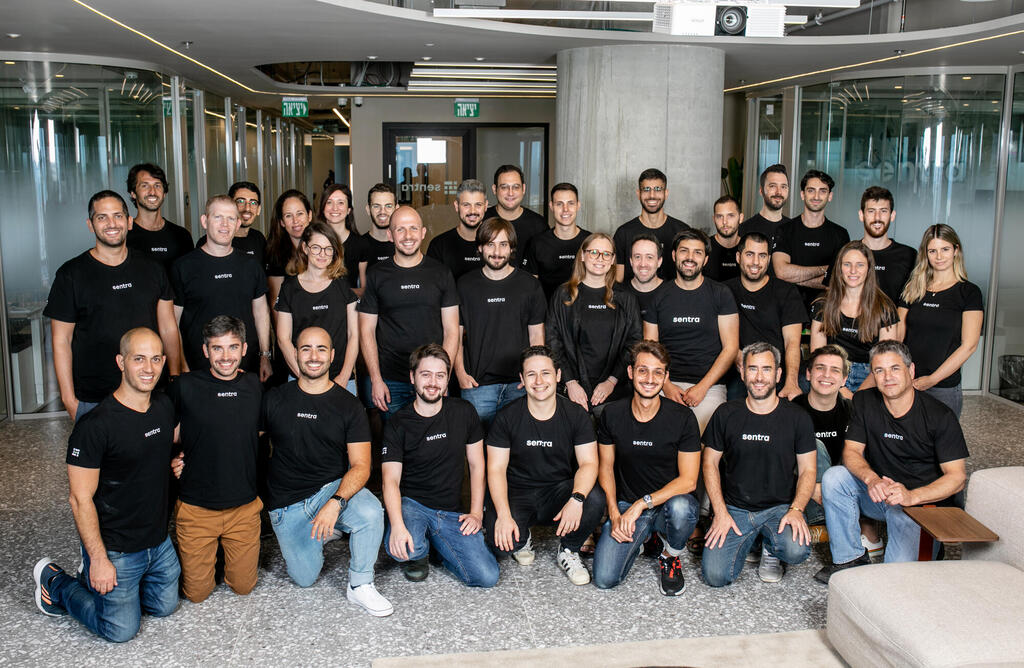
Mapping Israel's GenAI security pioneers
It is estimated that in the past year there were between eight and ten Seed rounds for Israeli AI security companies, averaging $5-6 million
Were the obituaries for the Israeli artificial intelligence industry premature? Probably so. While there may not be a direct local rival to OpenAI, Israel is firmly in the picture, particularly concerning applications that leverage large language models (LLM) or address their side effects.
The Pitango First venture capital fund has put together a map of the generative artificial intelligence (GenAI) security market, which highlights Israel's substantial presence in this emerging field.
Recent studies project significant growth in the market for cybersecurity solutions based on artificial intelligence, expected to surge from $19.2 billion in 2022 to a staggering $154.8 billion in 2032, with an average annual growth rate of 23.6%. Notably, both Nvidia and Palo Alto Networks have already made strategic moves in this direction. The initial capital raisings for startups in this space, even at the Seed stage, are substantial, reflecting the sector's potential.
"The field started to emerge in Israel in 2022, with 2023 witnessing numerous funding rounds, some undisclosed, and many companies still operating in stealth mode," said Aviv Barzilay, Senior Associate at Pitango First. “We will see many Series A rounds this year and the field will undergo a maturation process.”
It is estimated that in the past year there were between eight and ten Seed rounds for Israeli cyber AI companies, averaging $5-6 million.
At Pitango First, which specializes in early-stage investments, they put together a list of startups developing security solutions for GenAI, which includes about 30 companies, many of them Israeli.
"Cyber will be a much bigger market following the introduction of generative artificial intelligence, because it creates new challenges for everyone. From privacy to maintaining the information that these models input, whether it is at the intra-organizational level or as a result of their use by clients of the organizations," explained Barzilay in a conversation with Calcalist. "The big opportunity in this field is because its security concept has not yet been formulated, so there is a lot of room for the Israeli spirit and entrepreneurship. Cyber is a great opportunity for Israel to be at the forefront of AI."
According to Barzilay, the second half of 2023 was particularly active in this field. It is true that what gained the most public attention and the headlines are the large fundraisings, but significant technological breakthroughs were also achieved and large gaps were created as standards have not yet been set and therefore the market is very dynamic. "Alongside the companies that do the development in an organized way, there are many independent projects that grow from the ground up", noted Barzilay. "Many developers simply play with the new tools and thus solutions and projects are born, some within large companies such as Palo Alto, Nvidia or Google".
Generative artificial intelligence, which gained prominence after the rise of ChatGPT, introduces new cyber threats while offering opportunities for enhanced cyber protection. With both sides considered, GenAI is poised to become one of the most significant cyber markets, attracting increased corporate budgets.
Data security posture management (DSPM) is one of the most active sub-sectors that also includes the most Israeli companies, such as Flow Security, Sentra, Cyera, and Noname Security. This sector focuses on managing organizations' information used by models like ChatGPT.
For example, at the end of last year, the New York Times filed a lawsuit against Microsoft and OpenAI for illegal use of the media group's intellectual property by the LLMs.
Israeli presence extends to browser security, with companies like Talon Cyber Security, recently acquired by Palo Alto for $625 million, Dan Amiga's Island, and LayerX. The rise in generative artificial intelligence usage by programmers, employing tools like Microsoft's Copilot, introduces challenges in integrating cyber defenses into code, emphasizing the need to delineate boundaries between internal code and AI-generated content. Additionally, connections between language models and cloud systems, as demonstrated by Wiz's recent activity in the field, form another critical aspect.
Despite recent doubts about Israel's standing in the global AI industry, Pitango believes that artificial intelligence will usher in a paradigm shift in the cyber realm, breathing new life into areas such as information security and privacy that were perceived as faltering. Far from fading, Israel's cybersecurity market appears poised for rejuvenation and innovation spurred by artificial intelligence.
Israeli companies active in the GenAI security market:
DSPM - Protecting organizational data from being used by LLMs.
- Name: Flow Security. Founded: 2020. Funding: $10 million.
- Name: Noname Security. Founded: 2020. Funding: $220 million.
- Name: Sentra. Founded: 2021. Funding: $53 million.
- Name: Cyera. Founded: 2020. Funding: $165 million.
Browser/application security - Preventing the leaking of data through applications such as ChatGPT being used by employees.
- Name: Talon (Sold to Plao Alto). Founded: 2021. Funding: $169 million.
- Name: Island. Founded: 2020. Funding: $385 million.
- Name: LayerX. Founded: 2021. Funding: $7.5 million.
- Name: Aim Security. Founded: 2022. Funding: $10 million.
Prompts - Preventing the entry of malicious content into LLMs via prompts.
- Name: Lasso Security. Founded: 2023. Funding: $6 million.
- Name: Qualifire (Stealth)
Firewall - Monitoring and preventing unwanted communication.
- Name: Prompt Security. Founded: 2023. Funding: $5 million.
General/LLM - Preventing LLM hallucinations
- Name: Robust Intelligence. Founded: 2019. Funding: $44 million.
















